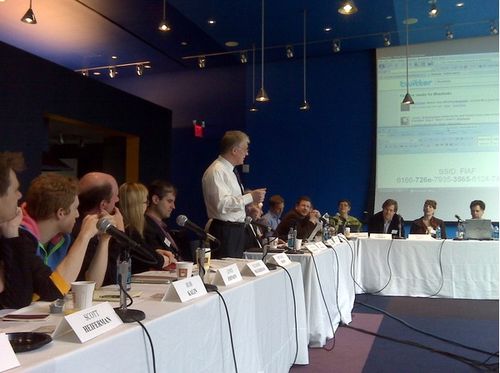Search monetization as a model for social media monetization
Peter Hershberg, co-founder of leading search engine marketing firm Reprise and a longtime veteran of the search marketing business, wrote a great post on Business Insider (fka Alley Insider) yesterday.
The following part, in particular, got my attention:
It’s easy to forget now that these were once considerations that search engines had to navigate through in the days before paid search advertising emerged. At the beginning of the search engine era, marketing was accomplished organically and engines struggled to find ways to monetize the traffic they were sending sites – sometimes going so far as to consider removing advertisers who declined to buy display advertising from their indexes so that they no longer ranked well for certain search terms.
Part of what search engines offered to attract advertisers to their paid search platforms was access to data, and the ability to target in a variety of ways that would have been more difficult to do organically outside their walls. Most importantly, search engines developed a way of making sure that the advertising opportunities they offered marketers aligned with the way consumers were already using their sites, rather than trying to change behavior instead.
In a similar way, if social media sites want to find a way to monetize engagement, there needs to be some added value for the marketer. What that might mean for platforms is giving up some control over data (something that Facebook has been wrestling with) or the type of interactions that marketers are able to take part in.
Eventually search engines found the right balance between commerce, control and user-friendliness, a balance that I believe social media sites will eventually strike.
There will be some false starts to be sure but there is much to be gained for all parties –marketers, social media platforms, and users – in getting the balance right.
The big takeaways from this are data and targeting as the hook for marketers and the need to integrate the paid marketing offerings into the user experience natively.
This doesn't mean that social media platforms simply need to copy the search engine's monetization systems. Its going to be more complicated than that. But there are plenty of parallels between search and social media, including that they drive traffic very effectively.
And studying the lessons of the fits and starts that search went through from its early days in the mid 90s to the time when overture finally figured it out and google perfected it in the early part of this decade is a really useful exercise for everyone seeking to monetize social media.
Thanks Peter for the post. It certainly got my mind working this morning.
![Reblog this post [with Zemanta]](http://img.zemanta.com/reblog_b.png?x-id=5d9df1f8-e7ef-4d47-bf56-83b646862be6)
![Reblog this post [with Zemanta]](http://img.zemanta.com/reblog_b.png?x-id=cd7fca88-a8dd-4bc8-8005-ca22ced80564)


![Reblog this post [with Zemanta]](http://img.zemanta.com/reblog_b.png?x-id=b80a8efa-fe98-485f-bb76-32ece8bf3b4c)

![Reblog this post [with Zemanta]](http://img.zemanta.com/reblog_b.png?x-id=a11f714c-2704-42d1-8576-3ce42772dfb6)

![Reblog this post [with Zemanta]](http://img.zemanta.com/reblog_b.png?x-id=86192f28-d7c8-4f15-99a9-886f909d8368)

![Reblog this post [with Zemanta]](http://img.zemanta.com/reblog_b.png?x-id=d4bc137e-73b1-4b77-a642-3bfc5734da0f)

![Reblog this post [with Zemanta]](http://img.zemanta.com/reblog_b.png?x-id=96957c29-c109-4734-937a-c6290d7364a9)